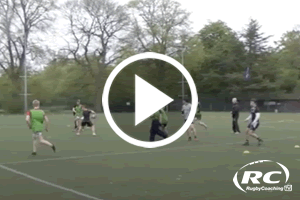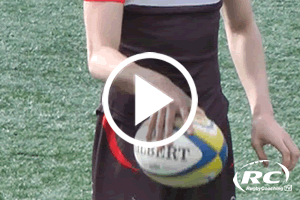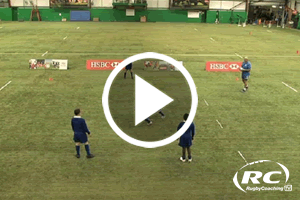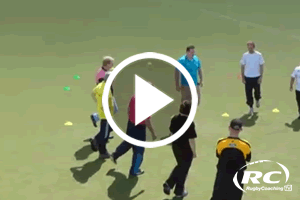
A Key Focus For Minis Coaches!
An often forgotten about section of the rugby world are the mini age groups. This is obviously hugely important to the development of the game in all countries, with regards to identifying talent and developing the culture and values which drive the game.
Is there anything we can all learn from these Autumn Internationals?
Yes, quite simply, skill conquers all. No matter how big, powerful and strong you are; skill and its execution under pressure cannot be overlooked!

Richard Wigglesworth touches on something very important here - skills are fun, for all age groups! As I'm sure you're aware, we must remember to make training sessions enjoyable for our young players. How else will we ensure they keep wanting to come back and learn more!
The ambitions for all mini-rugby players should be to emulate the elite players they see on TV or watch at the games they go to. Copying/modelling has always been an effective method of learning, especially in motor skills. How many young players learnt the Jonny Wilkinson kicking style after 2003?
Kids, especially the younger ones will copy their heroes and will want to emulate them and with this in mind, coaches need to be ready! From the recent international games here is a list of skills that we should be looking out for:
- The footwork of Michael Leitch for his try for Japan vs England
- The kicking skills of Johnny Sexton
- The Lines of running of Elliot Daly in his try vs Australia
- The passing excellence of Aaron Smith
As coaches we miss a trick if we do not build on this within the session, how can we do this?
- Award points for skills excellence – for copying their heroes, for being aspirational
- Have game rules that allow them to role play their sporting hero’s skills
- Play kicking games or target games for passing
- Use different shape balls to develop catching skills
- Use different coloured bibs and give those players different Super-Powers (skills)
- Only yellow can kick the ball after 2 passes for example
- Blue needs to be touched twice before passing to build evasion skills
- Red bibs mustn’t be touched – increasing passing skills
- These are examples – you must create your own parameters and rules
How do you coach these skills? Well progressively, carefully, by making it fun and challenging. The following games and practices will help you.

You must remember that simply playing games without technical instruction helps nobody. Coaches sometimes become lazy and think the game itself is the answer. Rather than using the game to test and develop an understanding of technical skill and when to use it.
Mini rugby coaches do not need to be technical wizards however they should be focussing on these basics:
1) How the youngster catches the ball (and other objects) and then grips the ball to transfer it via passing.

2) How the youngsters move their bodies including evasion – how do they side step for example.

3) This then goes onto how coordinated they are which includes balance

To be effective mini-coaches need not only the process skills we have discussed many times but also the ability to make it an inclusive and fun environment – encapsulating into the game the ambition to emulate their heroes.

